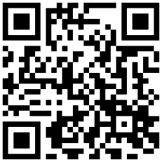激しいせきが
続く「
百日せき」について、
日本小児科学会は
これまでの
治療薬が
効かない「
耐性菌」が
各地で
報告されているとして、
感染を
防ぐため
生後2
か月を
迎えた
乳児に
速やかに
定期接種のワクチンを
接種をするよう
呼びかけています。
Regarding whooping cough, which is characterized by persistent severe coughing, the Japan Pediatric Society is urging that vaccines be promptly administered as part of routine immunization to infants who are two months old, as drug-resistant bacteria that are not affected by existing treatments have been reported in various areas to prevent infection.
百日せきは激しいせきが続く細菌性の感染症で、乳児が感染すると重症化して死亡するおそれもあります。
Whooping cough is a bacterial infection that causes a persistent severe cough, and if infants are infected, it can become severe and potentially fatal.
国立健康危機管理研究機構によりますと、全国の百日せきの患者数はことしこれまでの累計で4100人とすでに去年1年間の患者数を上回っています。
According to the National Institute of Health Crisis Management, the cumulative number of whooping cough patients nationwide this year has already exceeded last years total, reaching 4,100.
こうした状況を受けて日本小児科学会は百日せきへの注意を呼びかける文書を公表しました。
The Japan Pediatric Society has published a document calling for attention to pertussis in response to this situation.
それによりますと、患者数の増加に伴い重症化するケースも報告されているとしたうえで、これまで治療に使われてきた抗菌薬が効かない「耐性菌」が各地で報告されているとしています。
According to the report, it states that with the increase in the number of patients, cases of severe illness have also been reported, and antibiotic-resistant bacteria that do not respond to the antibiotics previously used for treatment are being reported in various regions.
学会は、耐性菌に感染していた場合、通常の抗菌薬で治療を受けたあとでも感染を広げてしまうおそれがあるため、せきが続く間はマスクを着けることや、治療薬の選択について感染症に詳しい小児科の医師に相談するよう呼びかけています。
The academic society is urging that if infected with resistant bacteria, there is a risk of spreading the infection even after treatment with regular antibiotics. Therefore, it is recommended to wear a mask while the cough persists and to consult a pediatrician who specializes in infectious diseases regarding the choice of treatment.
そのうえで生後6か月未満の乳児はワクチンを接種していないと特に重症化リスクが高いとして、生後2か月を迎えたら速やかに定期接種のワクチンを接種するよう呼びかけています。
In addition, it is emphasized that infants under six months old who have not been vaccinated are at particularly high risk of severe illness, and it is advised to promptly vaccinate them with scheduled vaccinations as soon as they reach two months of age.

























